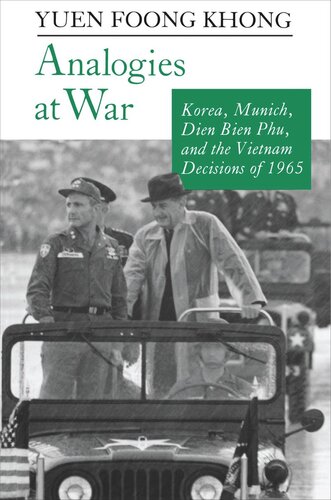

Most ebook files are in PDF format, so you can easily read them using various software such as Foxit Reader or directly on the Google Chrome browser.
Some ebook files are released by publishers in other formats such as .awz, .mobi, .epub, .fb2, etc. You may need to install specific software to read these formats on mobile/PC, such as Calibre.
Please read the tutorial at this link: https://ebookbell.com/faq
We offer FREE conversion to the popular formats you request; however, this may take some time. Therefore, right after payment, please email us, and we will try to provide the service as quickly as possible.
For some exceptional file formats or broken links (if any), please refrain from opening any disputes. Instead, email us first, and we will try to assist within a maximum of 6 hours.
EbookBell Team

4.3
58 reviewsFrom World War I to Operation Desert Storm, American policymakers have repeatedly invoked the "lessons of history" as they contemplated taking their nation to war. Do these historical analogies actually shape policy, or are they primarily tools of political justification? Yuen Foong Khong argues that leaders use analogies not merely to justify policies but also to perform specific cognitive and information-processing tasks essential to political decision-making. Khong identifies what these tasks are and shows how they can be used to explain the U.S. decision to intervene in Vietnam. Relying on interviews with senior officials and on recently declassified documents, the author demonstrates with a precision not attained by previous studies that the three most important analogies of the Vietnam era--Korea, Munich, and Dien Bien Phu--can account for America's Vietnam choices. A special contribution is the author's use of cognitive social psychology to support his argument about how humans analogize and to explain why policymakers often use analogies poorly.